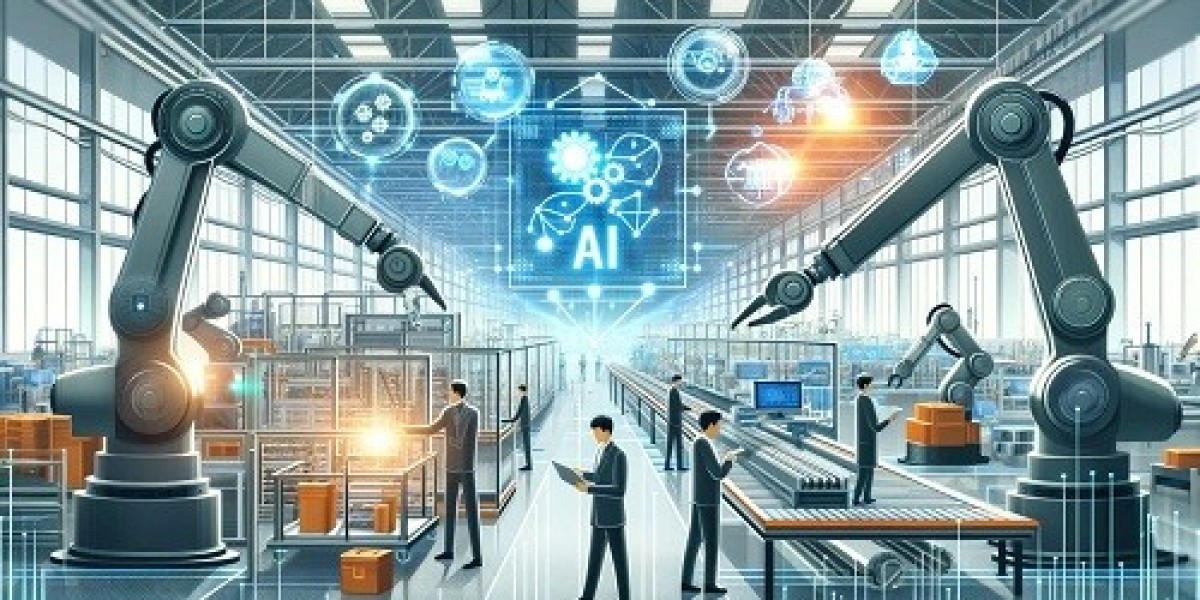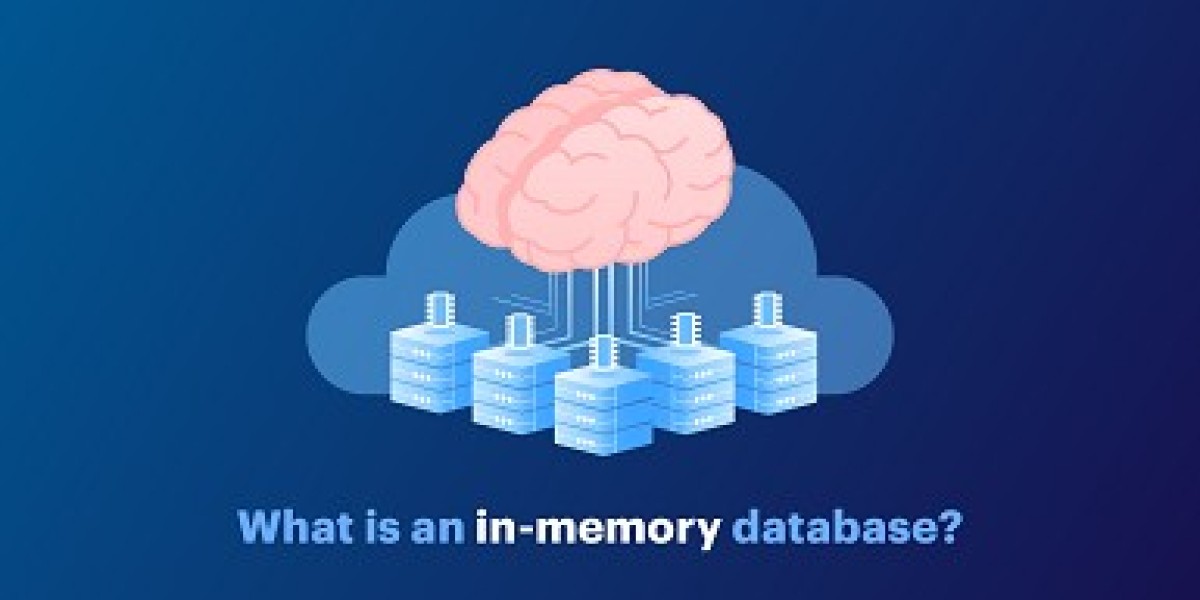The Industrial AI market is rapidly emerging as a transformative force in global manufacturing and production sectors. With the increasing demand for automation, efficiency, and intelligent systems, businesses across the globe are integrating artificial intelligence into industrial applications to remain competitive. Industrial AI blends traditional industrial processes with cutting-edge AI technologies like machine learning, computer vision, and natural language processing to improve productivity, reduce operational costs, and enhance safety and accuracy. This fusion has paved the way for smart factories, predictive maintenance systems, and AI-powered robotics that are redefining how factories operate in the digital age.
Industrial AI is finding applications across diverse sectors, including automotive, aerospace, electronics, energy, pharmaceuticals, and food processing. In manufacturing environments, AI systems can monitor equipment in real-time, predict machine failures before they occur, and automate repetitive tasks to boost efficiency. These systems also offer advanced analytics, enabling decision-makers to make faster and more accurate judgments based on real-time data. Furthermore, the integration of AI with IoT (Internet of Things) devices allows for interconnected systems that communicate and optimize operations without human intervention. This convergence of AI and industrial systems is helping companies transition toward Industry 4.0, the next wave of the industrial revolution.
Get a sample PDF of the report at –
https://www.marketresearchfuture.com/sample_request/12213
A key driver of the Industrial AI market is the growing focus on predictive maintenance. Traditional maintenance methods often rely on scheduled checks, which can lead to unplanned downtimes or unnecessary servicing. AI-powered predictive maintenance, on the other hand, uses data from sensors and machine logs to forecast when a component is likely to fail, thus enabling timely repairs and reducing downtime. This results in substantial cost savings, improved operational reliability, and extended equipment lifespan. Many companies are now adopting such solutions to minimize production interruptions and ensure smooth operations.
Smart factories, a concept at the core of Industry 4.0, are also fueling the growth of the Industrial AI market. These facilities leverage AI algorithms to analyze vast amounts of production data, enabling dynamic adjustments to the manufacturing process. From quality control using computer vision to robotics powered by reinforcement learning, AI is helping factories operate with minimal waste and maximum precision. Furthermore, AI systems enhance workplace safety by detecting hazards in real time and initiating preventive measures. This intelligent automation leads to more agile production cycles, reduced error rates, and optimized resource utilization.
The Industrial AI market is supported by a robust ecosystem of technology providers, system integrators, and software developers. Companies like Siemens, IBM, GE Digital, ABB, and Schneider Electric are at the forefront of developing AI-driven industrial solutions. These industry leaders offer platforms that integrate machine learning, data analytics, and cloud computing to deliver end-to-end AI capabilities. Additionally, startups and niche players are entering the market with innovative tools that focus on specific verticals such as supply chain optimization, energy efficiency, or industrial robotics. As competition intensifies, the market continues to benefit from technological advancements and increased R&D investments.
Geographically, North America and Europe are leading the adoption of Industrial AI, thanks to their well-established manufacturing bases and strong digital infrastructure. The United States, in particular, is witnessing accelerated deployment of AI in industrial settings, driven by favorable government initiatives and significant private-sector investments. Meanwhile, countries in Asia-Pacific—such as China, Japan, and South Korea—are rapidly expanding their industrial AI capabilities, motivated by their large-scale manufacturing industries and ambitions to become global leaders in smart factory development. Latin America, the Middle East, and Africa are also showing growing interest, though adoption is still in the early stages.
Despite its rapid growth, the Industrial AI market faces several challenges. Data security and privacy concerns are among the top barriers, especially in sectors where sensitive information is involved. The complexity of integrating AI into legacy systems and the shortage of skilled professionals are additional hurdles for widespread implementation. Moreover, the cost of initial setup and the need for high-quality data to train AI models can deter small and medium enterprises. However, as AI technologies mature and become more accessible, these challenges are gradually being addressed through better regulatory frameworks, cloud-based AI platforms, and government-backed training programs.
Browse a Full Report –
https://www.marketresearchfuture.com/reports/industrial-ai-market-12213
Looking ahead, the future of the Industrial AI market appears promising. The integration of generative AI, edge computing, and 5G technologies is expected to further accelerate innovation and deployment. Generative AI can aid in designing new manufacturing processes or product prototypes, while edge computing enables real-time AI processing directly on industrial devices. Combined with high-speed connectivity offered by 5G networks, these technologies will unlock new opportunities for real-time collaboration, remote operations, and autonomous industrial systems. As a result, businesses that invest in Industrial AI today are likely to gain a significant competitive advantage in the coming years.
The Industrial AI market is poised for substantial growth, driven by its ability to enhance productivity, reduce costs, and enable smarter operations across industries. As more organizations recognize the strategic value of AI in transforming industrial workflows, adoption rates are expected to soar. While challenges remain, continued technological advancements and increased investment in AI infrastructure will play a crucial role in shaping the future of industrial automation. The Industrial AI revolution is not just coming—it is already reshaping the industrial landscape on a global scale.
Top Trending Reports:
Understanding WLAN: Wireless Local Area Network Explained -
https://www.proathletediscuss.com/read-blog/3913
Mobile Value-Added Services (MVAS): Transforming Mobile Experiences -
https://iswao.com/blogs/420/Mobile-Value-Added-Services-MVAS-Transforming-Mobile-Experiences
In-Game Advertising: Revolutionizing Brand Engagement in Digital Worlds -
https://top1muabansi.com/read-blog/8015
Autonomous AI and Autonomous Agents: A Revolution -
https://www.volopai.com/post/2339_autonomous-ai-and-autonomous-agents-a-revolution-in-intelligent-systems-autonomo.html
(2) Digital Transformation in Healthcare: Revolutioniz -
https://eilmbook.com/post/1119_digital-transformation-in-healthcare-revolutionizing-patient-care-the-healthcare.html
Contact
Market Research Future (Part of Wantstats Research and Media Private Limited)
99 Hudson Street, 5Th Floor
New York, NY 10013
United States of America
+1 628 258 0071 (US)
+44 2035 002 764 (UK)
Email: sales@marketresearchfuture.com
Website: https://www.marketresearchfuture.com








